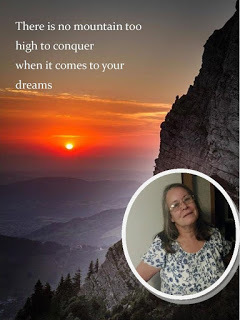Commas and Conjunctions

Welcome to Monday Blogs. As always, I’ll be discussing some part of the writing process. Today, I’m going to discuss a growing problem I’ve noticed recently. First, though, a walk through memory lane. Bear with me. This does relate.
Once upon a time, individuals who felt the call to write a book made time first to study the art. We read books of all genres, to immerse ourselves on what made a great book and what made a book you’d rather not touch. Our concentration was intense. We didn’t just absorb the words on the page but also the crafting of those words, how punctuation was used, and how a celebrated author built up the tension leading to the climax.
Once we were certain we could emulate these authors and their success, we would jot down some ideas but we were also on the hunt for either a college program that would hone our skills or a “class by mail” program. That would be snail mail; this was long before email was a household word.
For years, we worked under the tutelage of those who had been there and successfully navigated the shark infested waters of finding an agent, a publishing house willing to take on our work, and finally, our moment in the sun. Nothing would stop us in our quest to be a world famous author, not even constant rejections. Those hardened the desire of anyone willing to delve into this career path.
Even though I’ve been writing since I was in my early teens, I never truly focused on this as a full time job until the mid-nineties. It was a card given to me as part of a new parent package at my local hospital, following the birth of my youngest child. The Institute of Children’s Literature appealed to me in many ways. First, it focused on children’s writing, and my avocation was to have more interesting books for teens; given the dearth I’d suffered in that genre growing up during the turbulent sixties and seventies. I began their first course while dealing with two teenagers and an infant getting into everything. Soon, I’d finished and been recommended for the second course. The Long Island Writers Group invited me to take their course on writing adult books. Sure, why not? I might want to enter that realm one day. Then Writer’s Digest, a magazine I’d subscribed to for a few years, had a pull out card for their courses. Soon, I was juggling four different mail based courses, children, a husband, and a house. Yet, I never wavered.
I polished my grammar skills. Research became more than an afternoon in the library while my children were involved with their programs. Ideas were kept in a spiral bound notebook. Each and every day, I was preparing myself mentally for what I hoped would be a stellar career, with one of the Big 5 publishers having a publicist handle my book tours and talk show appearances. I was definitely caught up in what an author was then.
By the time I finished all these courses, a total of eight, I’d already had five short stories accepted for publication in the magazine market. The twentieth century was in its waning days. I felt that it was time to start on the book market, as I’d noticed that the magazine market was slowing down. Once the century turned, it was as if everything I knew about being an author had changed overnight.
Except one thing—the rules of grammar. Yes, it was more difficult to get a book accepted by the Big 5 but I wasn’t giving up on that dream. I even joined or created critique groups, to not only get involved with other authors but also to improve my work. That was when I noticed something I’d never thought would be part of the writing process.
Commas were now being used after all conjunctions, even if they weren’t necessary. There are grammar rules you never break and this is one of them. Use a comma before any coordinating conjunction (and, but, for, or, nor, so, yet) that links two independent clauses.
An independent clause is one that has a subject and a verb in it. If there is no subject in the part of the sentence after the conjunction, you do not use a comma. Also, don’t add a noun to the second clause in order to make it an independent clause. That never works.
Yet, too many people are sprinkling commas after conjunctions as if they’re the spice of the sentence. Soon, there are so many commas the reader is inadvertently taking a breath, a break in reading, in order to understand what you’re saying. Only, they’re confused and lost. That may result in lost readers, an act none of us want.

Born and raised in Southern California’s Los Angeles basin, K.C. Sprayberry spent years traveling the United States and Europe while in the Air Force before settling in northwest Georgia. A new empty nester with her husband of more than twenty years, she spends her days figuring out new ways to torment her characters and coming up with innovative tales from the South and beyond.
She’s a multi-genre author who comes up with ideas from the strangest sources. Those who know her best will tell you that nothing is safe or sacred when she is observing real life. In fact, she considers any situation she witnesses as fair game when plotting a new story.
Website
Goodreads
Amazon Author Page
Google +
Manic Readers
AUTHORSdb
Readers Gazette
Authors Den
Published on October 02, 2017 00:00
No comments have been added yet.



